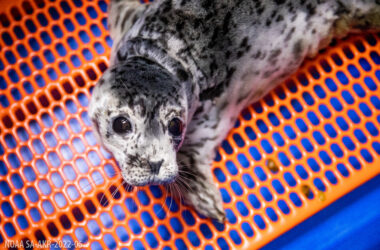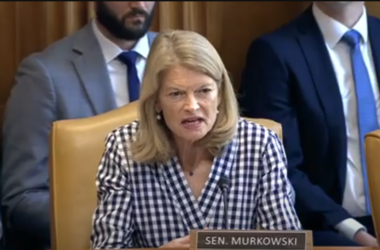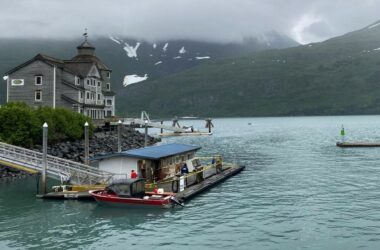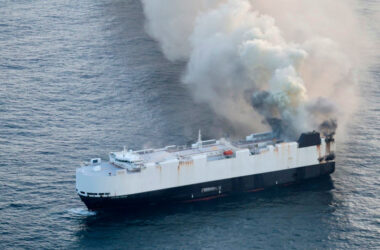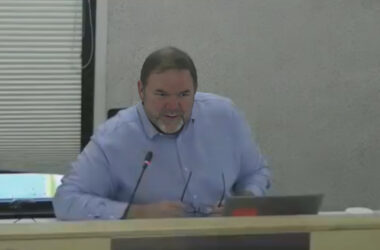The Alaska Department of Fish and Game is cracking down on illegally dumped fish waste, warning the public of fines as well as the potential for attracting bears.
With southcentral Alaska salmon fisheries well underway, the department is reminding anglers and dipnetters to dispose of fish waste properly. “Discarding fish waste on public or private property or along roads, pull-offs, and trails can attract bears into residential areas and result in fines ranging from $300 to $1,000,” ADF&G said in a press release.
In Anchorage and the Kenai Peninsula, fish waste is illegally discarded each year in vacant lots, greenbelts, and along city streams and lakeshores. Anchorage area wildlife biologist Cory Stantorf believes many people who dump fish waste don’t realize the danger they create for others.
“Improper disposal of fish carcasses can and will draw bears to neighborhoods,” said Stantorf, “and brown bears, particularly, may aggressively defend those food sources.”
Last week, several fishers in and around the mouth of the Kenai River reported seeing a brown bear swimming in the water. A video of the bear began circulating on social media, gaining tens of thousands of views. In separate posts, other locals shared pictures of a brown bear running through residential areas in Kenai. It is unclear whether the bear spotted in the Kenai River and the bear on dry land were the same one.
The problem of illegally discarding fish carcasses isn’t limited to Anchorage or the Kenai Peninsula. Fish waste also sets the stage for human-bear conflicts in the Matanuska-Susitna Valley. Illegal dumping is prohibited under Alaska’s littering laws.
Anglers and dipnetters who clean fish on-site should chop carcasses into numerous pieces and throw them into fast-moving water. Those who remove fish from the fishing site and fillet or process them elsewhere should consider the following recommendations:
- If allowed, fish waste should be taken directly to a waste transfer station or to the landfill. Another option is to freeze fish waste to eliminate odors and then place it out with garbage on the morning of trash pickup. Do not place waste out the night before pickup.
- The Central Peninsula Landfill located at Mile 98.5 Sterling Highway 2.5 miles south of Soldotna accepts fish waste free of charge from 8 a.m. to 5:45 p.m. seven days a week in summer.
- Fish waste can also be deposited at Kenai Peninsula transfer facilities, including those in Cooper Landing, Kasilof, and Ninilchik, but in smaller quantities; all fish waste must be double-bagged in plastic trash bags with a limit of two bags dropped off per day.
- Anchorage Regional Landfill, the city’s Central Transfer Station, and the Girdwood Transfer Station all accept residential, non-commercial fish waste.
- Matanuska-Susitna Borough Solid Waste accepts small quantities of non-commercial fish waste (less than 150 pounds) at the Central Landfill located at N. 49th State Street in Palmer. Must be double-bagged and tied in leak-proof bags. For more information, call 907-861-7801.


